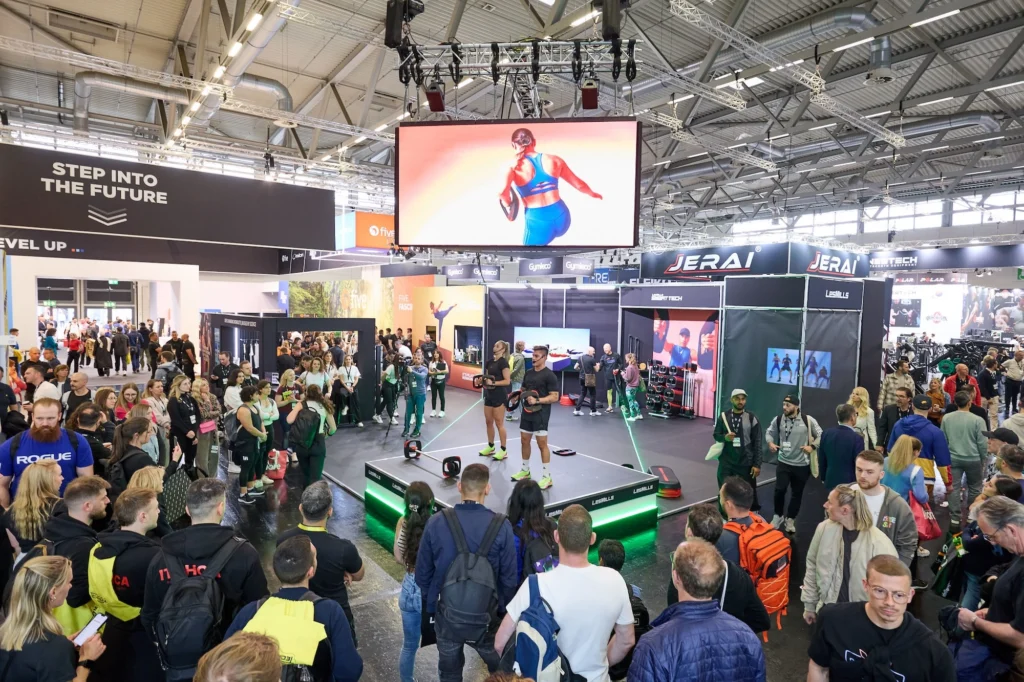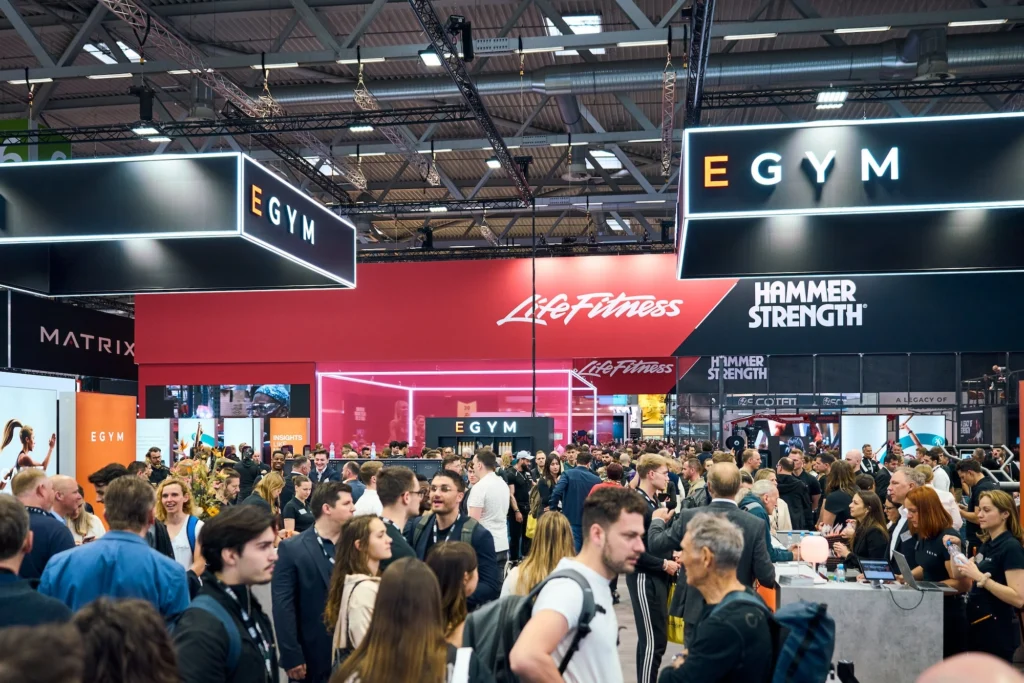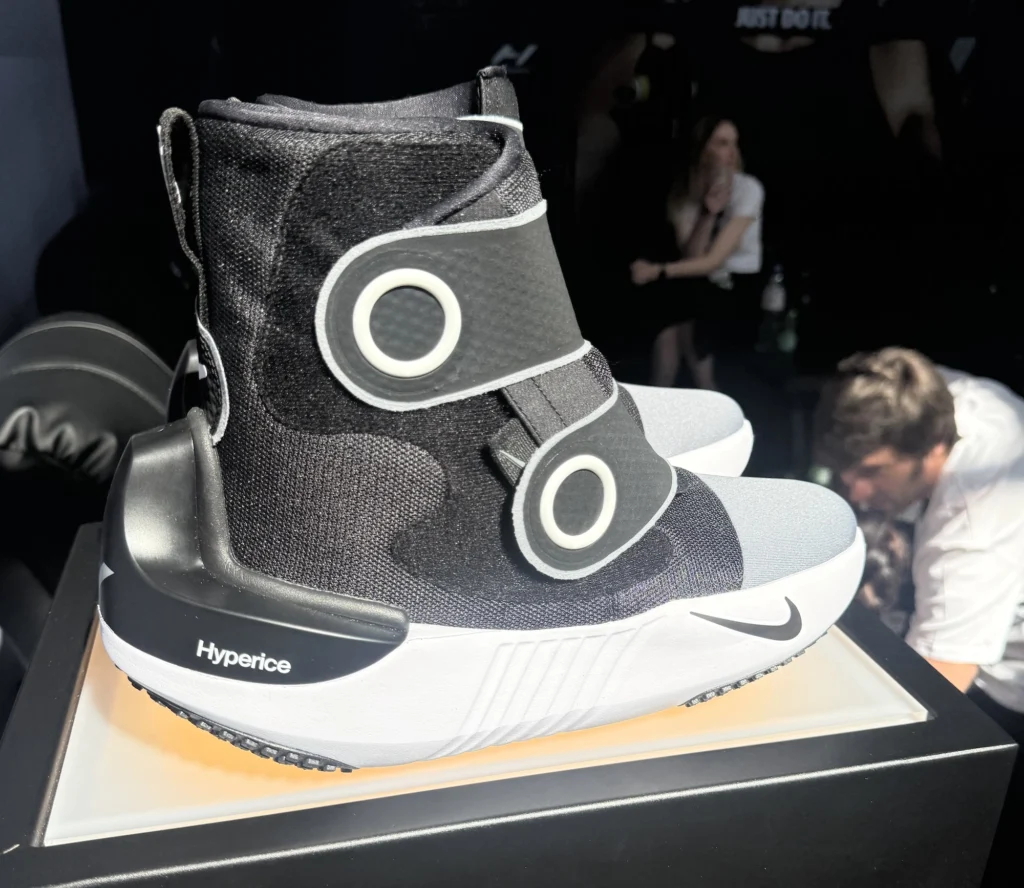FIBO 2025 wrapped up in Germany this past weekend and one thing was clear from the event: the fitness industry is growing in Europe – and across the world.
According to FIBO, over 150,000 people from 129 countries attended the four-day fitness industry show and conference, held from April 10-13 in Cologne, Germany. Attendees included C-suite executives, influencers and a large number of fitness consumers.
Overall, the event featured a dynamic mix of B2B and consumer-focused content, with educational sessions spanning fitness, wellness and longevity/hospitality. More than 1,2000 brands and partners exhibited on the show floor, which was teeming with fitness equipment manufacturers, AI-powered health tech offerings, supplement companies and athleisure brands.
“The strategic repositioning of FIBO was a tremendous success,” said Silke Frank, FIBO’s event director. “For four days, we set new standards and offered inspiration for a healthy, active lifestyle.”

The event has also emerged as an important gathering spot for industry leaders. At FIBO 2025, the growth potential of Europe’s fitness market emerged as one of the week’s key themes.
On Wednesday, EuropeActive and Deloitte published a report finding that European fitness memberships grew to 71.6 million while industry-wide revenues reached €36 billion ($39.8 million) in 2024, both of which are all-time highs. The two organizations project that Europe will reach 100 million memberships by 2030.
During the European Health & Fitness Forum (EHFF), an invite-only event held the day before the FIBO show, executives from Europe’s largest fitness companies gathered to discuss the report and what it means for the future of the industry.
One of the forum’s key topics was the rise of boutique fitness in continental Europe as European fitness consumers begin to seek out more premium offerings (for the time being, though, low-price gyms continue to dominate in Europe).
“Boutique fitness, which is quite old already in London and New York, is still starting in continental Europe,” Benjamin Roth, the CEO of Berlin-based corporate wellness platform Urban Sports Club, said during a panel session. “That is … a massive opportunity.”
Europe-based gym and studio brands are actively pushing into the boutique market, but American brands such as Orangetheory Fitness also have their eye on European expansion.
Strength Training Takes Over the Show Floor
On the show floor, strength training equipment, Pilates reformers and AI-powered fitness technology offerings took center stage, although there was something for just about everyone.
Technogym showed off its newly released Pilates reformer, which marks the Italian fitness equipment and tech giant’s entry into the red-hot Pilates market. Other big-name brands including EGYM, Life Fitness / Hammer Strength and Matrix Fitness all had large presences at FIBO, devoting much of their floor space to displaying new strength training offerings and tech-forward innovations like AI-powered workout tools.

REP Fitness, which just announced its direct-to-consumer launch in the United Kingdom, also had a strong presence, showcasing its strength training equipment including power racks, free weights and storage racks.
Hyrox had perhaps the biggest presence of any brand at FIBO 2025. The viral fitness racing brand staged an event, Hyrox Cologne, inside one of the show’s exhibition halls, where attendees could watch Hyrox athletes compete in front of their eyes. Hyrox also showed off its Hyrox 365 solution for gyms and studios, along with its partnerships with brands like Centr and Puma.

On the wellness and recovery side, Hyperice staged a joint booth with Nike to give attendees a first look at their upcoming Nike x Hyperice recovery shoes, which are set to launch soon. Nike also showcased its new line of strength training equipment including bumper plates, dumbbells and kettlebells.

Hospitality Industry Embraces Fitness & Wellness
FIBO 2025 also marked the global fitness industry’s embrace of longevity and wellness tourism.
At the event’s all-new Longevity & Hospitality Summit, C-Suite executives and other leaders from the global hospitality industry discussed how the world’s biggest and most exclusive hotel brands are working to implement wellness and longevity offerings for guests.
More than anything, the event signaled the hospitality industry’s embrace of fitness and wellness, which could bring the industries closer together in the future.
“It’s the most annoying thing when you travel and instead of using a hotel to optimize your nutrition, to optimize your sleep, you’re being disrupted,” Mattheos Georgiou, a senior vice president for hospitality brands Siro and Rare Finds, said during one of the summit’s panel discussions.
Georgiou added that for luxury hotel guests, wellness is “no longer a nice-to-have; it’s an expectation.”
“We now see people networking in the infrared sauna instead of the cigar lounge,” he said. “We’ve seen the yoga studio being booked for social gatherings instead of the bar. So the (guest mindset) is shifting.”



